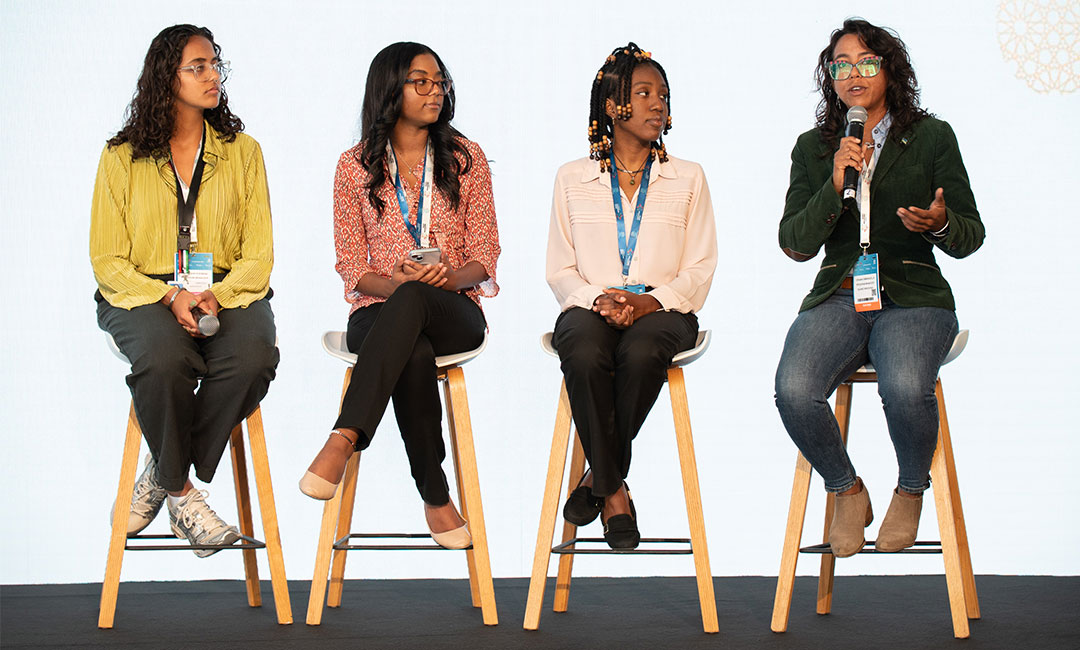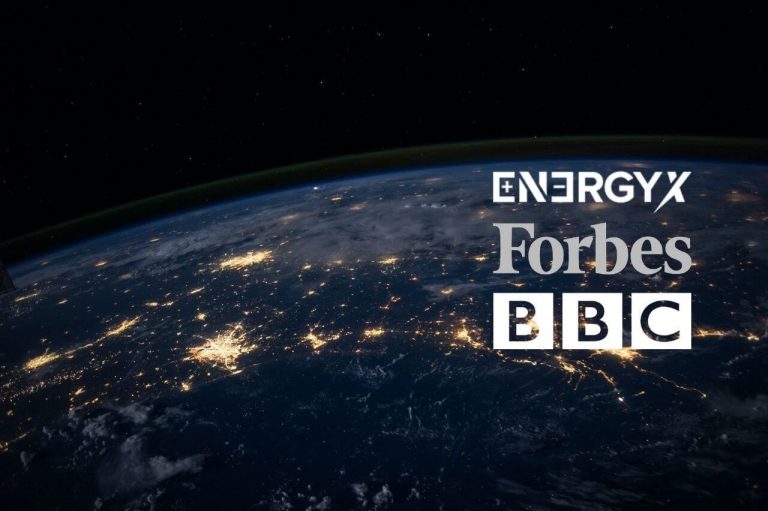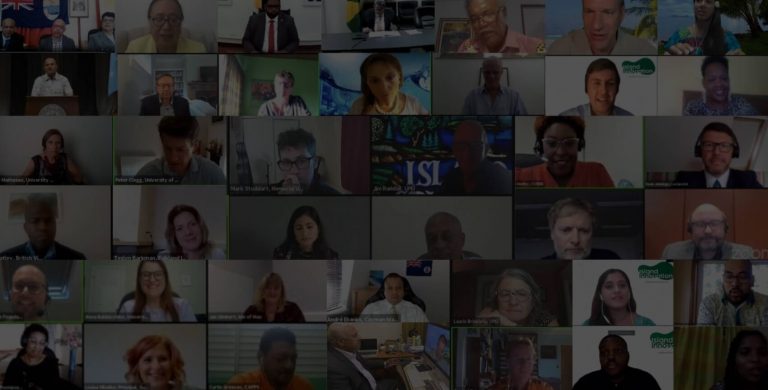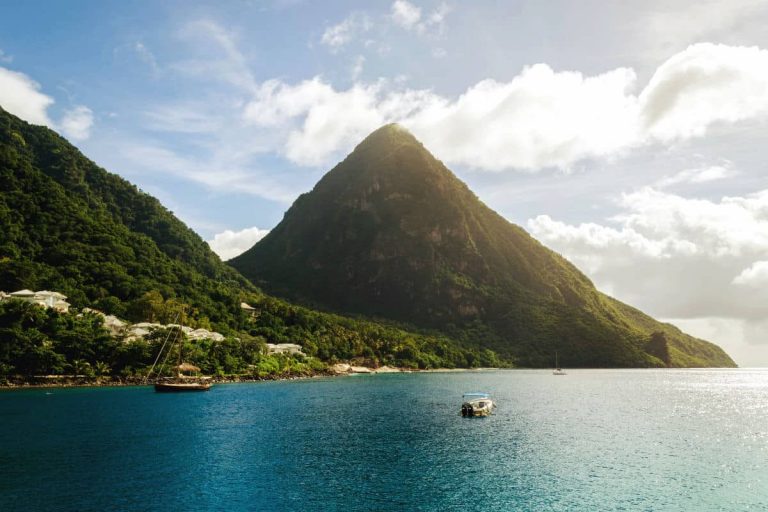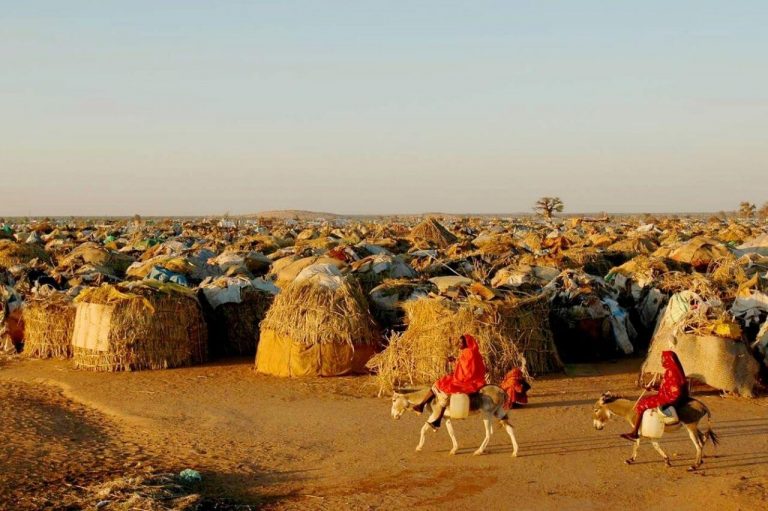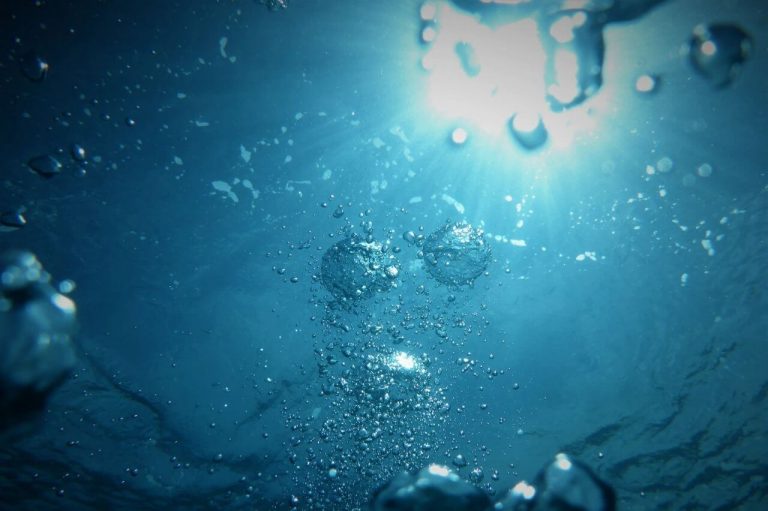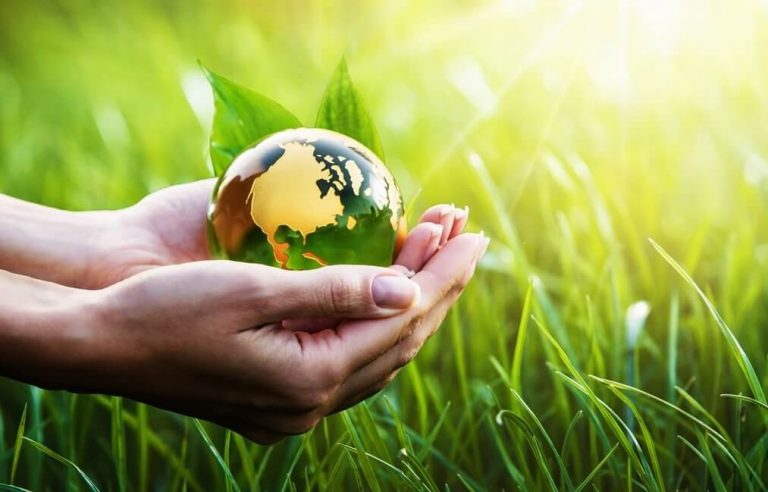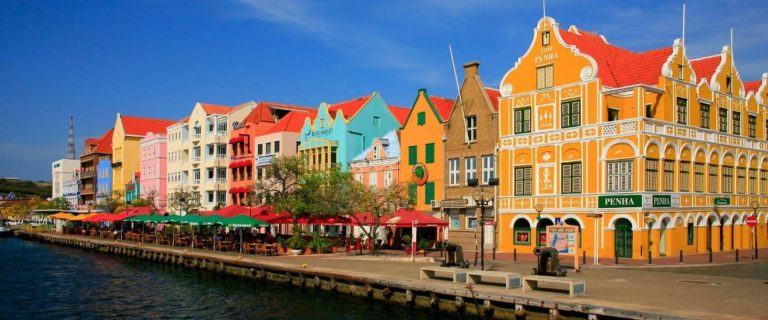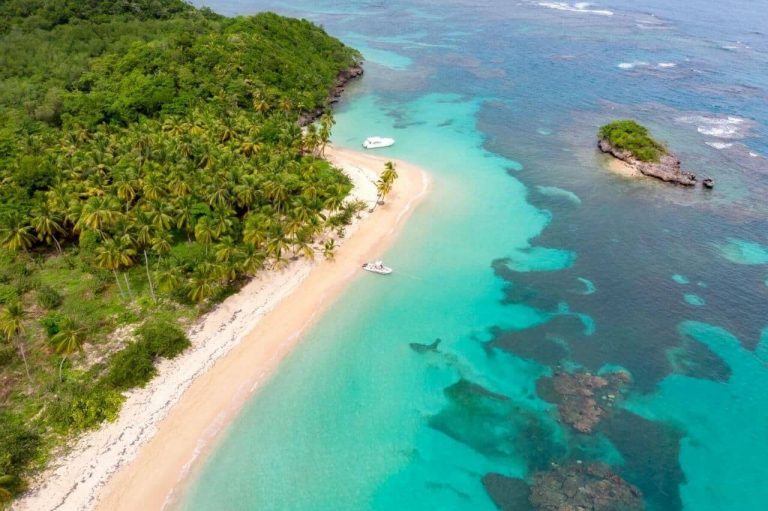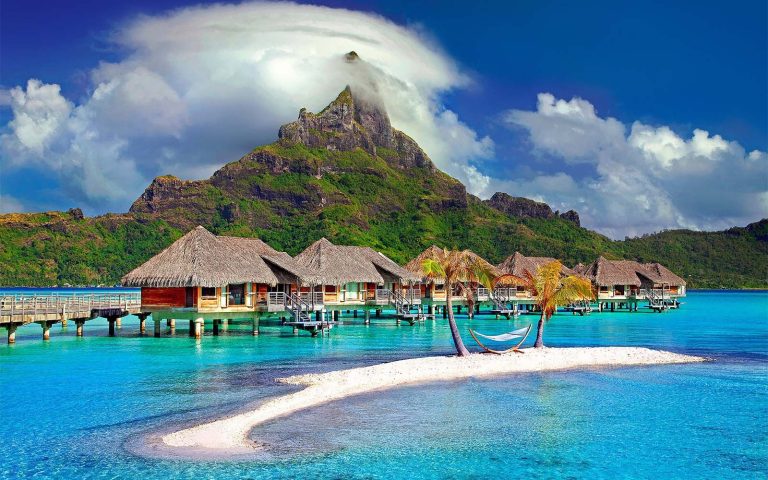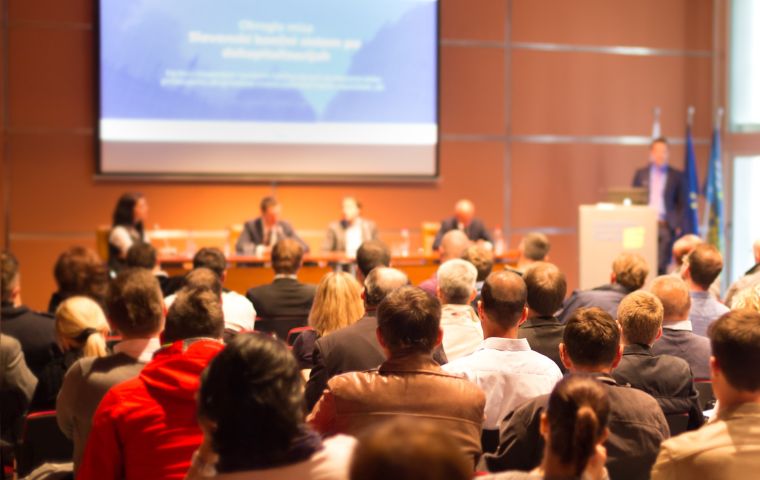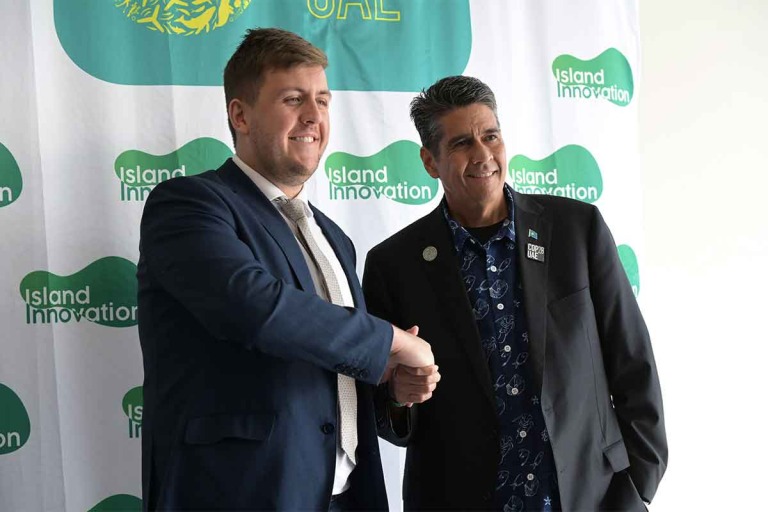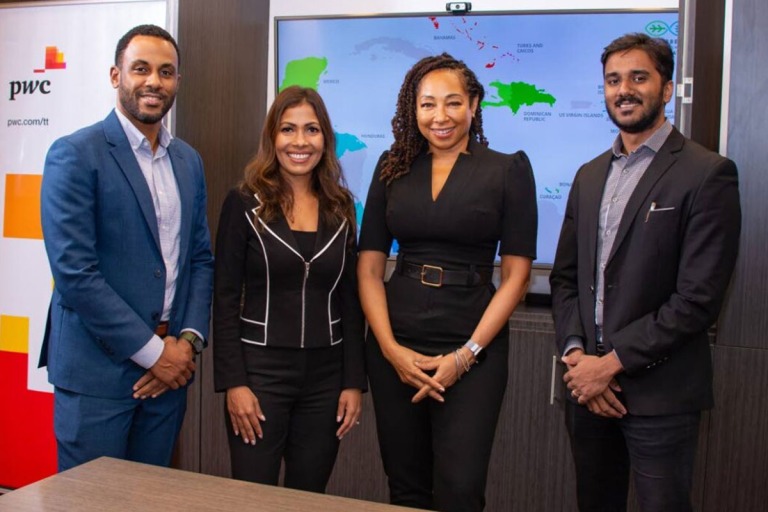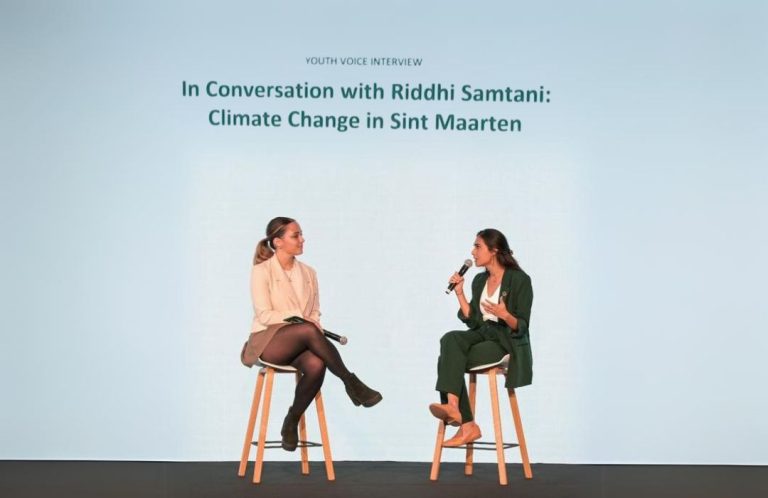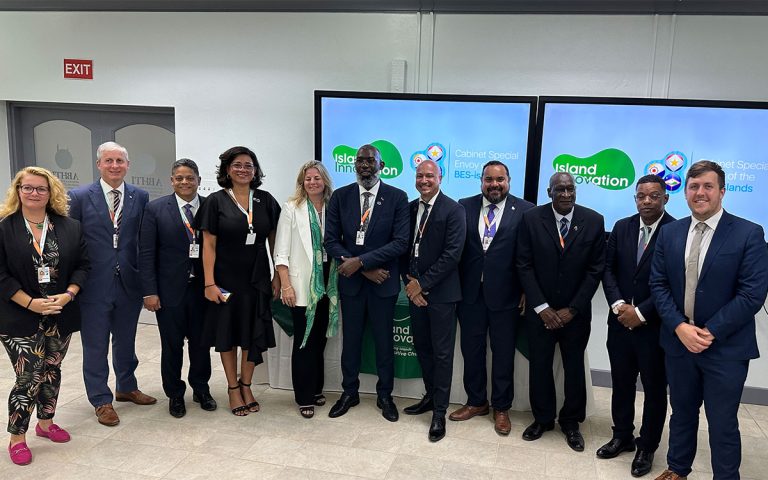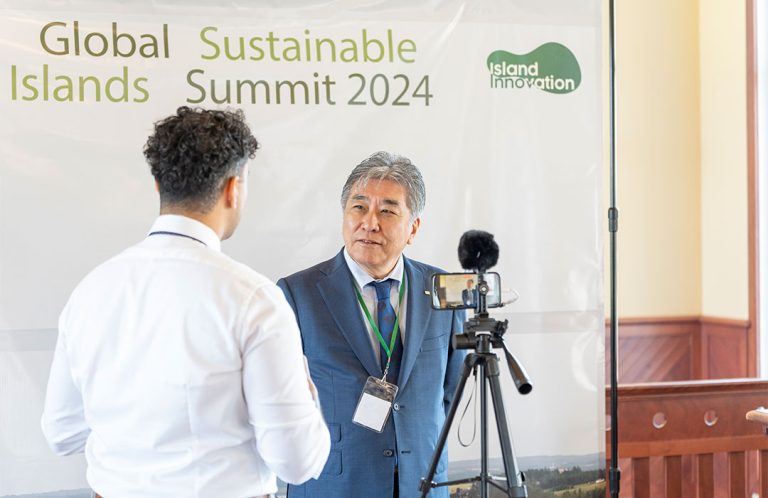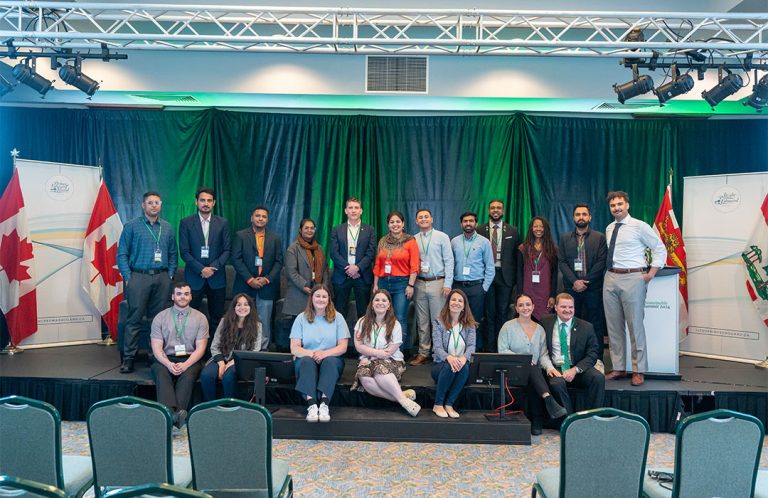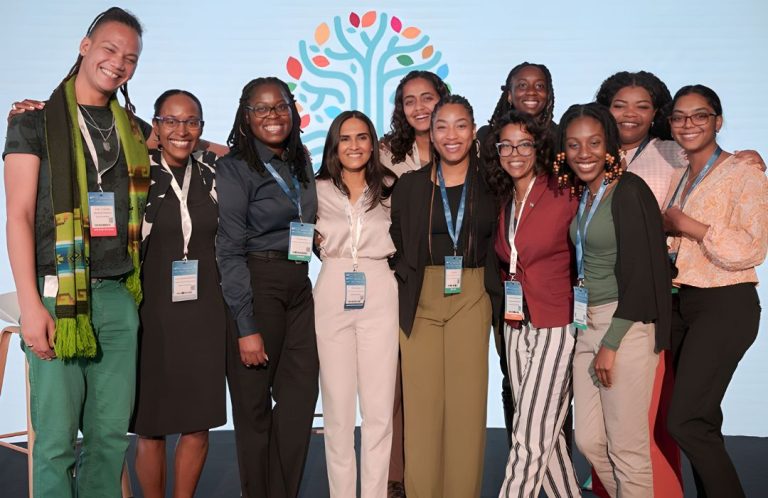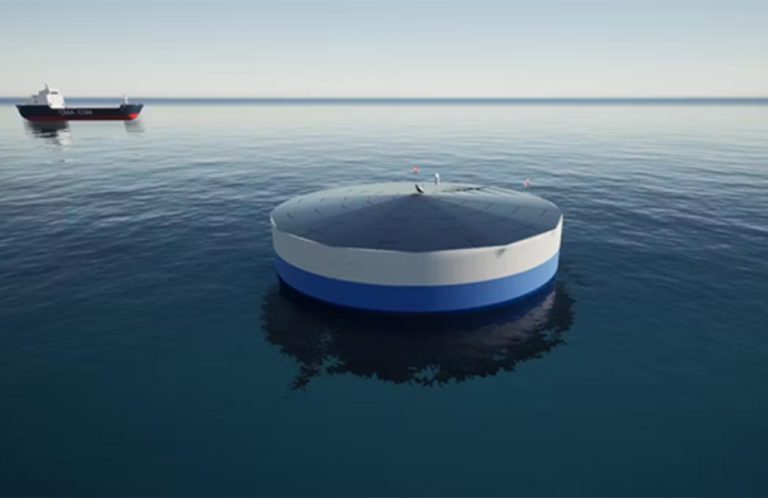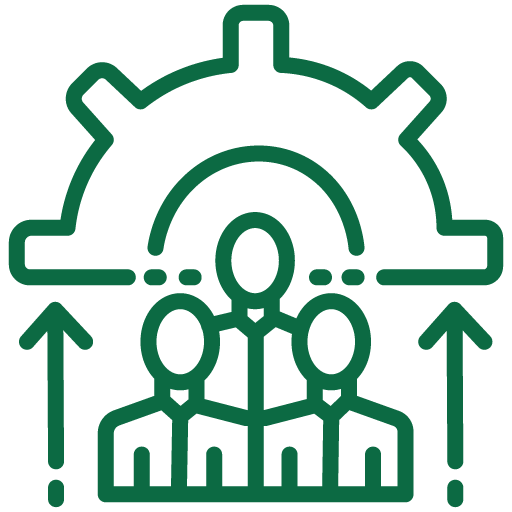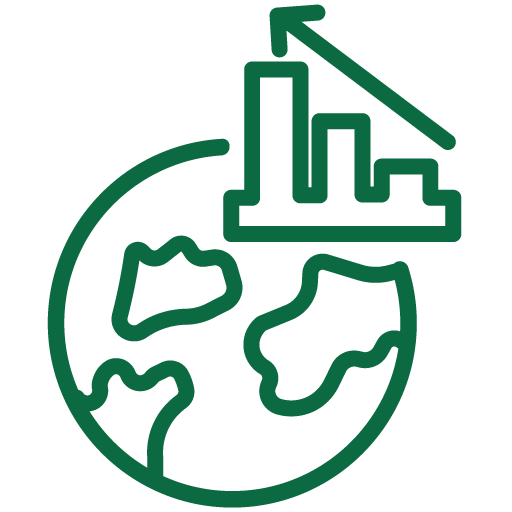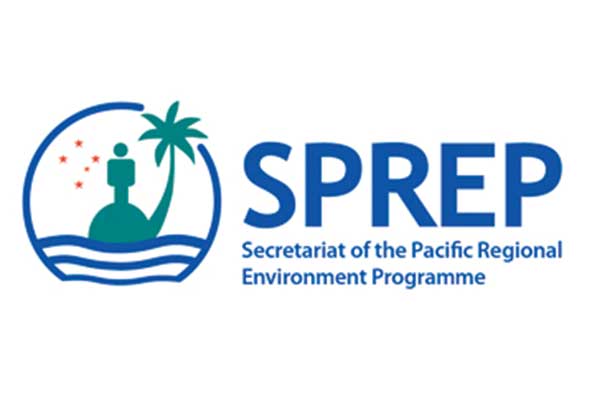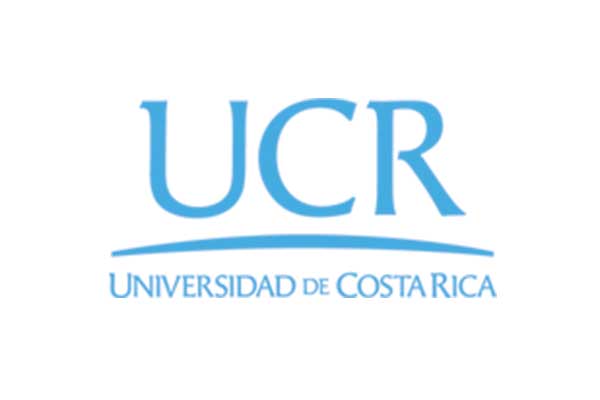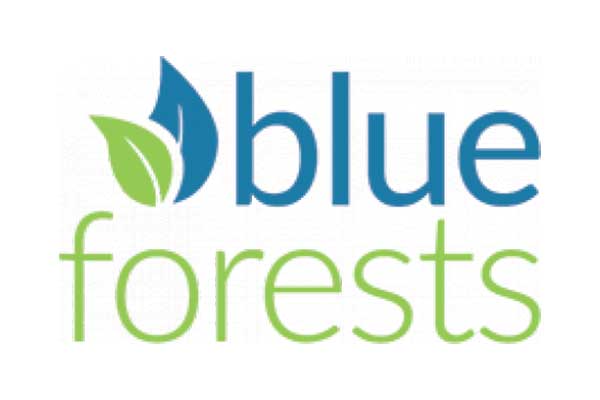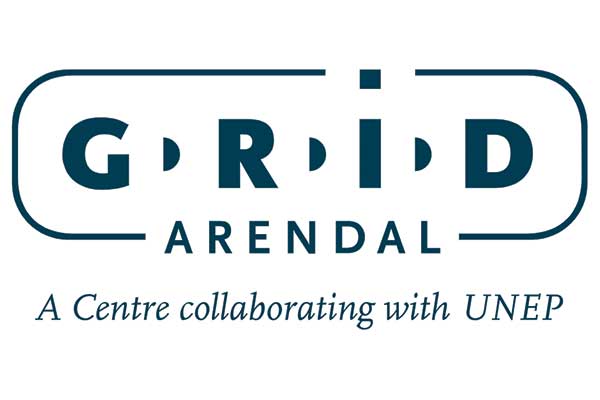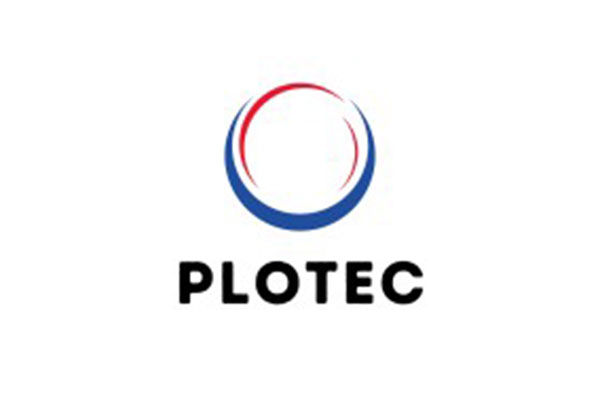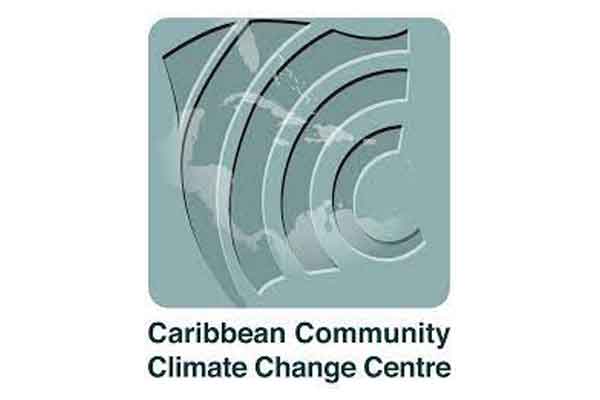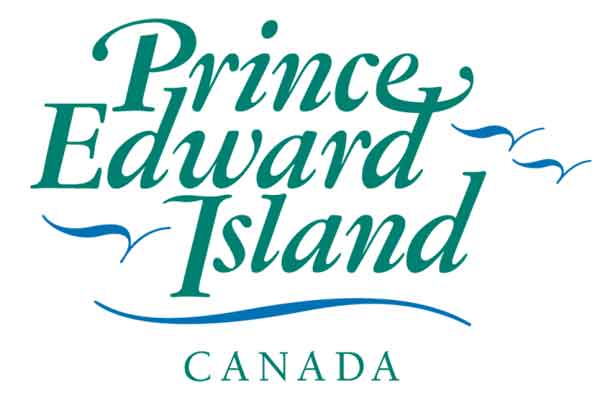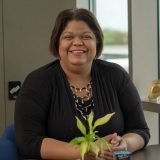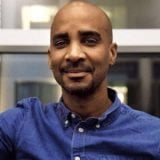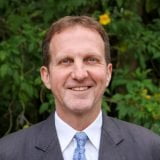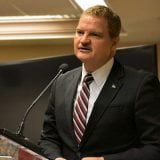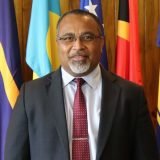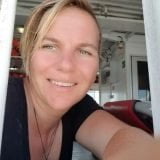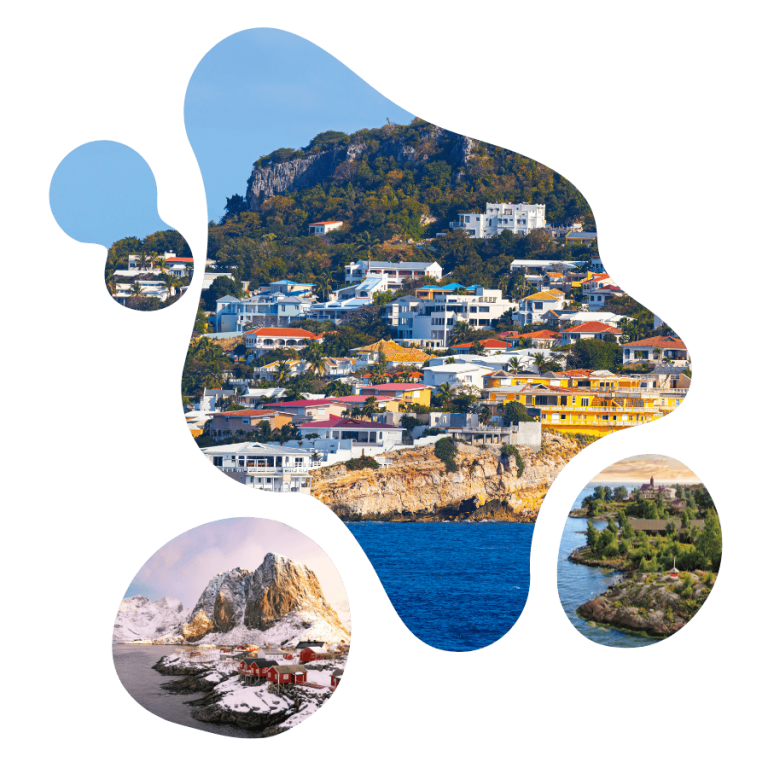Case Studies
What is Climate Justice?
Climate change has emerged as the biggest challenge facing humanity and requires a feat of collaboration that has rarely been seen before. However, as the world’s governments begin to take action to identify, negotiate, and implement the solutions capable of reducing carbon emissions to sufficient levels, many vulnerable communities have already been on the frontlines of climate change. Islands, atolls, and low-lying coastal areas have been considered at risk since the inception of the Intergovernmental Panel on Climate Change (IPCC) in 1992, and over the past thirty years the effects of climate change have slowly gripped a wide range of communities around the world who overwhelmingly tend to have low historic emissions and limited economic development. Current scientific models show that these areas will continue to bear the brunt of the crisis. This means that there is a large subsection of the world’s population that is impacted the most by climate change but who are not responsible for its creation – an inequality from which is born Climate Justice. The movement is centered around a more equitable form of climate action that takes into account historical and current emissions into the share of responsibility for tackling climate change and helping vulnerable communities adapt to the crisis.
The Client: The Open Society Foundations
The world’s largest private funder of independent groups working for justice, democratic governance, and human rights, the Open Society Foundations identified Island Innovation as the best partner to develop a climate justice programme in the Caribbean. OSF has trusted Island Innovation in the planning, implementation, and execution of the Academy, and committed resources to ensure it is able to operate for at least two years.
The Caribbean Climate Justice Leaders Academy
Following the call for applications, over 500 applications from across the Caribbean were received from which a 35-strong group was selected to take part in the programme. This inaugural group hailed from every CARICOM nation and highlighted how deep the interest in climate justice was in young people in the region.
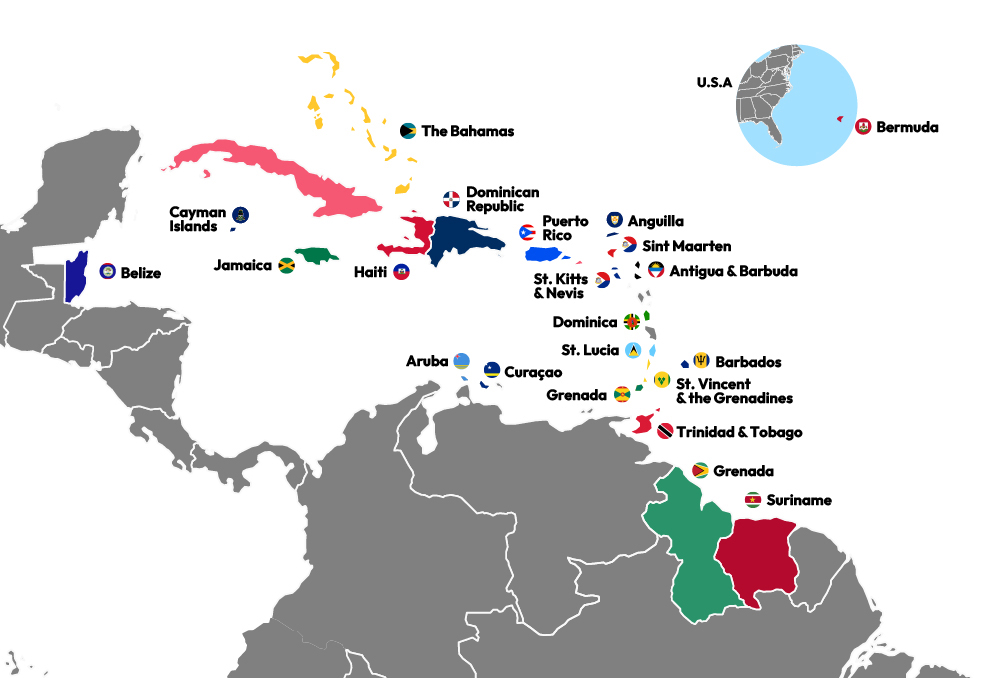
Why did you want to participate in the CCJLA?
Island Innovation was trusted to leverage its expert network to put together a 10-week programme aimed at building participants’ knowledge on environmental sustainability, climate resilience, international policies and how they impact the Caribbean. Speakers included Island Innovation CEO James Ellsmoor, Stop Ecocide Ambassador Nesha Abiraj, author Jeremy Williams, as well as Bajan tech entrepreneur and activist Donnya Piggott.
Originally planned to be a selection of 5 members, the cohort’s outstanding results and involvement in addition to interest from regional stakeholders such as the Caribbean Community Climate Change Centre as well as Grant Thornton and Nagico Insurances enabled Island Innovation to fund an additional 5 participants to the Dubai delegation.
What did it mean to go to COP28?
Each day at COP, I found myself in a state of wonderment. Witnessing young people, queer individuals, and people of all colors and backgrounds united for a common goal was truly inspiring. COP proved to be an environment where you could shape your experience based on your morals, philosophies, and goals.
Staying grounded in my values and aspirations while navigating the bustling atmosphere of COP allowed me to glean invaluable insights and connections. It reinforced the notion that despite the enormity of global challenges, collective action and shared determination can pave the way for meaningful progress.
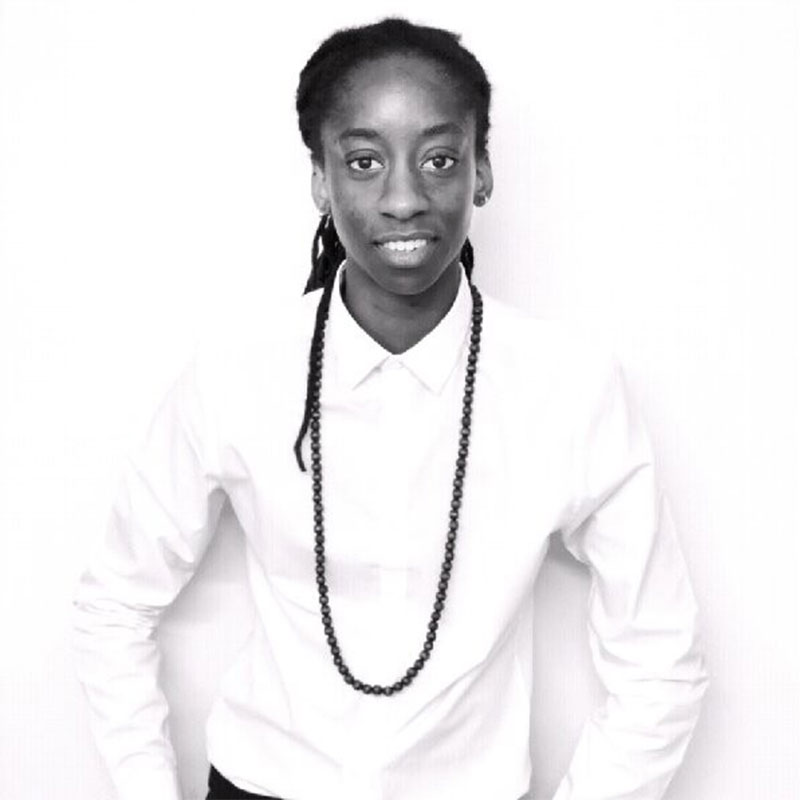
Agenda partners for the Island of Hope stage alongside Climate Action at COP28, Island Innovation had already planned a week-long schedule of speaking engagements for high-level island stakeholders. This stage would feature the CCJLA cohort moderating and speaking alongside seasoned diplomats, activists, entrepreneurs, and policymakers.
Cohort members were encouraged to network and leverage their time in Dubai to further their own professional development projects. This included sitting in on negotiations, attending events, building relationships with stakeholders, and learning more about the UNFCCC processes firsthand through plenary discussions.
In addition to the Island of Hope, the CCJLA Dubai group were invited to speak at a range of pavilions in the Blue Zone and interacted with regional and global decision-makers including Barbados PM Mia Mottley, St Vincent and the Grenadines PM Ralph Gonsalves, Curaçao PM Gilmar Pisa, and Netherlands PM Mark Rutte.
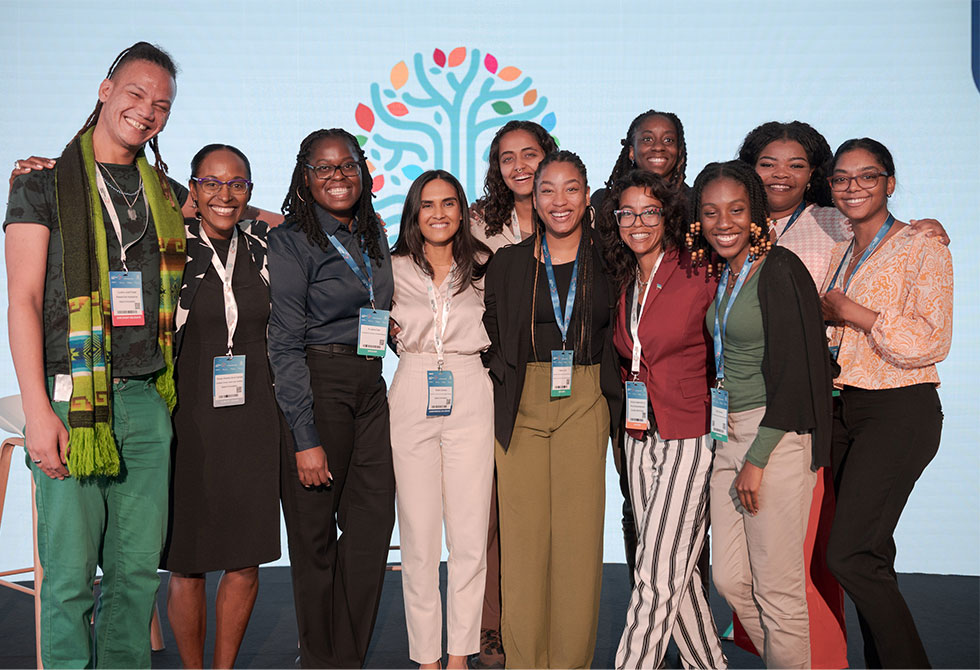
The Dubai Group at the Island of Hope Stage
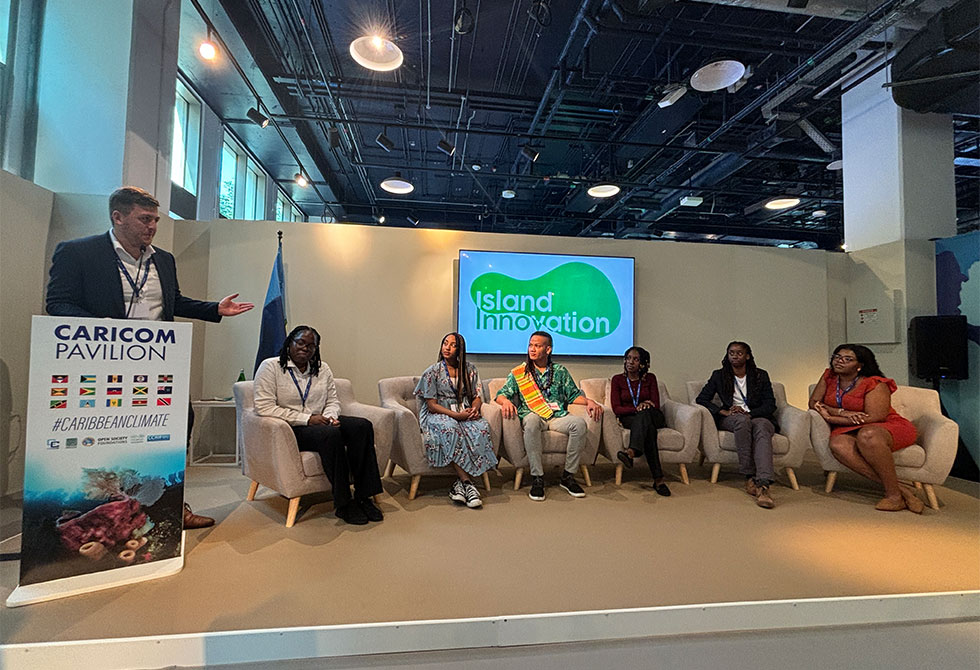
Members of the CCJLA speaking at a session in the CARICOM Pavillion

Members of the CCJLA and Island Innovation with Barbados PM Mia Mottley
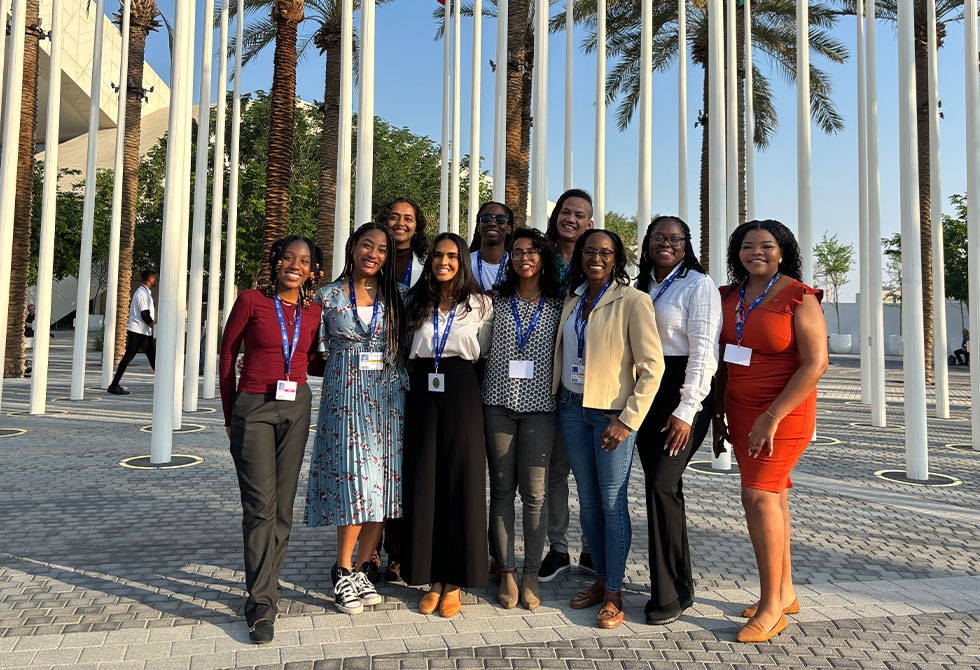
Members of the CCJLA at Expo 2020 in Dubai to attend COP28 events
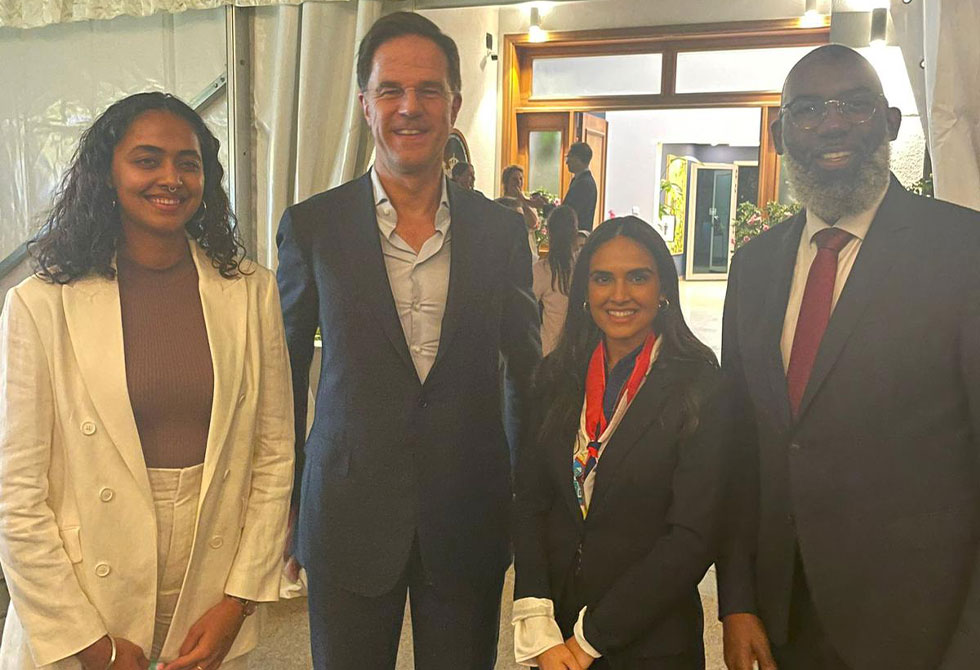
Members of the CCJLA with Netherlands PM Mark Rutte and Curaçao PM Gilmar Pisas
Cohort members who were not part of the Dubai delegation were encouraged to develop their own content and projects using the information gained throughout the course.
Elodio Rash has a project in Belize that aims to support indigenous communities in achieving food security, while preserving their rich cultural heritage. With the help of this initiative, 15 indigenous farmers were able to allocate one acre of their farmland as pilot plots. The project provided them with nursery materials and seedlings of local crops such as coco, banana, plantain, and cassava, which were then transplanted onto degraded lands. This effort has greatly benefited the community and has had a positive impact on soil fertility.
Trevon Callender from Barbados works with a project to revitalize the native marine turtle populations, vital for environmental balance. By prioritizing measurement and conservation, alongside public awareness, the project has established a regional tagging center. A comprehensive collection of training programs, education modules, and public awareness initiatives have been devised and executed. The project’s success is attributed to its commitment to engaging stakeholders from various sectors while also extending outreach to countries with shared migratory sea turtle population management responsibilities.
Impact
The impact and reach of the Academy’s inaugural cohort was larger than Island Innovation had hoped. This group of 35 young people showcased the importance of having youth from underrepresented regions involved in critical discussions on climate and society, and being able to have these conversations at a regional or global level.
“Everything about this program was ground-breaking: From the breath-taking diversity of the participants and the nuanced appreciation of the complexities of climate justice, to the powerful levels of personal development and solid bonds of friendship that were forged in mutual respect and empathy,” reflects Programme Coordinator Stacey Alvarez de La Campa, “There was a palpable, enduring confidence that bloomed as everyone felt increasingly empowered, and I am deeply humbled by the qualities of leadership that came shining through from these exceptional young champions of climate justice.”
This exceptional group will help inspire and drive capacity-building in their local communities, and highlights not just how keen young people are to participate in climate action, but also regional stakeholders. Countless Caribbean organizations, governments, and private sector businesses reached out to Island Innovation to identify opportunities to support the CCJLA and promote the calls to action echoed by the young leaders taking part in it. As the Academy enters into its second year, it is doing so with the support of key regional entities.
How did the CCJLA programme impact you?
At COP28, I was able to solidify working relationships with ministerial representatives, and this led to a pilot project where I will be mapping out Land Surface Temperature at the neighborhood level across the island. Along with Oriana Wouters (2023 CCJLA member from Aruba), we are also working together to conduct a retrospective study of their islands to assist in the ratification of the UNFCCC and Paris Agreement.

Press
Kerese Elliott, 2023 CCJLA member from St. Kitts & Nevis
Riddhi Samtani, 2023 CCJLA member from Sint Maarten
Yemi Knight, 2023 CCJLA member from Barbados
K. Lisana Dyer , 2023 CCJLA member from Dominica
Mia Symster, 2023 CCJLA member from Antigua & Barbuda
Riddhi Samtani, 2023 CCJLA member from Sint Maarten

